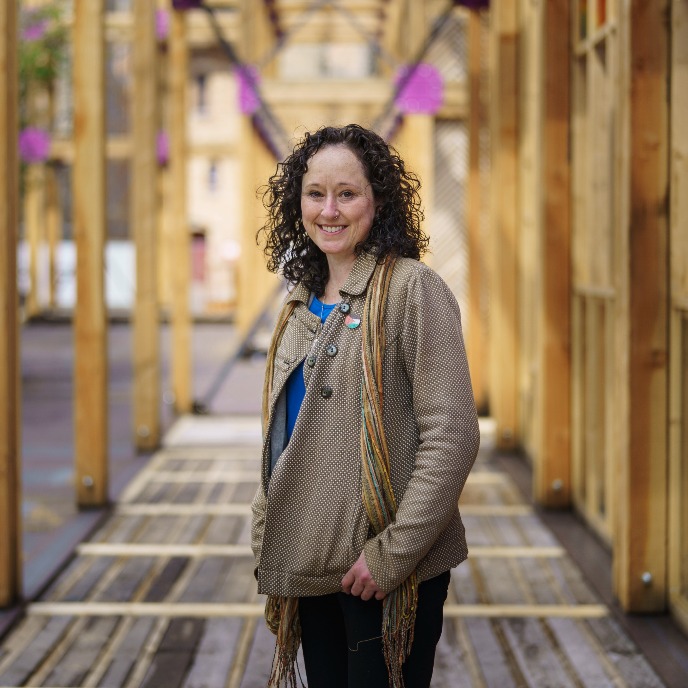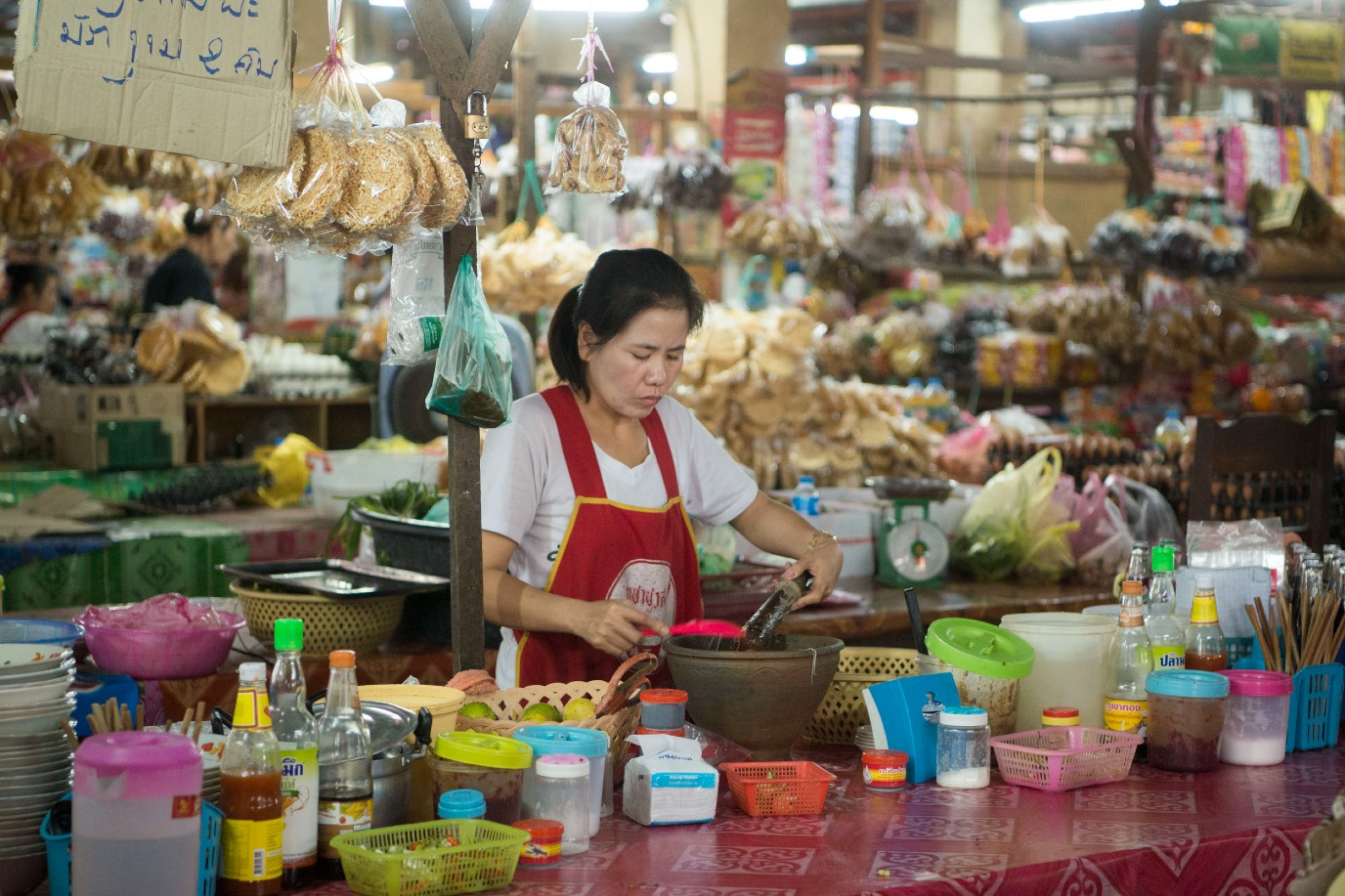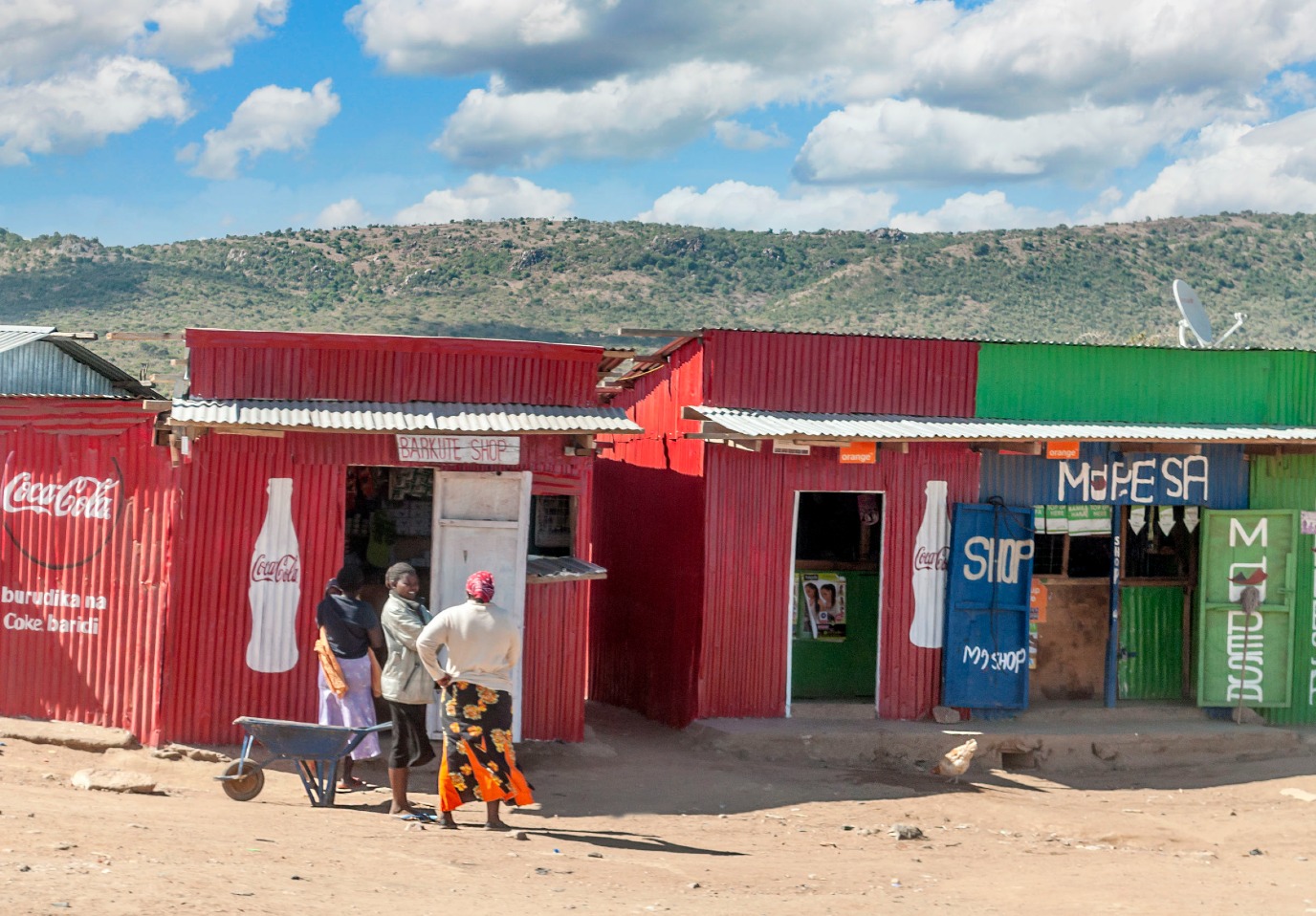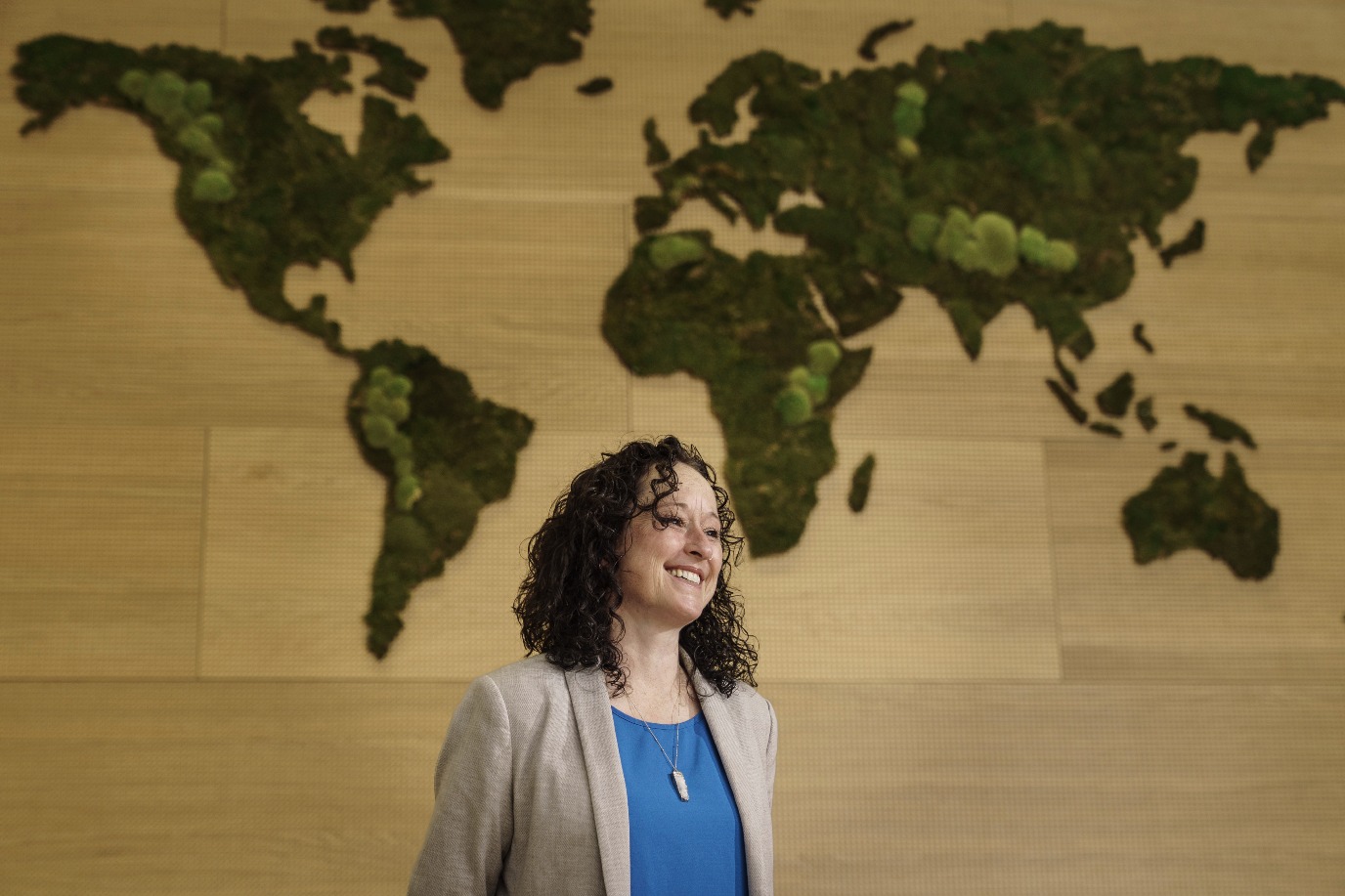The darker side of tourism

Once upon a time, her passion for travel and spending holidays abroad led Meghan Muldoon to study tourism. However, due to her research, she also became aware of the darker sides of this pastime. That is the reason why Muldoon, assistant professor of Sustainable Tourism and Society, wants to shed some light on the harmful effects of tourism on both the environment and the people in the host country. Her message is: enjoy it, but make conscious choices as a tourist.
Text: Dorien Vrieling / Photos: Reyer Boxem
Soft towels, perfectly folded. Someone cooking for you whatever you feel like eating. Staring out the window as an unfamiliar landscape flies past. Finally time to read all 656 pages of The Song of the Stork and the Dromedary, stretched out on a towel by the sea. There are so many great things about going on holiday. Meghan Muldoon, assistant professor of Sustainable Tourism and Society at the UG’s Campus Fryslân, would be the last to deny it. She enjoys travel just as much as most people do. ‘After all, I didn’t choose to study tourism without a reason.’
North-South tourism
Anyone who has opened a newspaper in the past ten years knows that there’s also a ‘but’. And indeed: ‘The problems caused by tourism are overwhelming.’ First of all, it is harmful to the planet — air travel significantly contributes to global warming, and according to the Dutch Emissions Authority, the Dutch aviation sector has never emitted as much greenhouse gas as in 2024. In addition, the people who make our holidays possible are affected too, particularly in poorer regions, such as the Caribbean. Muldoorn refers to this as ‘North-South tourism’.
‘If you travel to the Bahamas, you think you’re only there for ten days. Time to relax, wearing your brand-new sandals. You enjoy the environment, take pictures, and spend your money there. In other words, you’re doing something good. But for the locals, you’re always there, 365 days a year. You stay in their most beautiful places, eat their best foods, and use up most of their water.’

Modern colonialism
In fact, tourism from the West to less prosperous countries can basically be seen as modern colonialism, according to Muldoon. ‘Think of this: the goal of colonialism was to take away raw materials from the local population, exploit the local population for our own benefit, and come and go as we pleased. Can you see much of a difference?’
Muldoorn recognizes that this is not a popular message, the fact that tourism causes damage. During the pandemic, when tourism largely stopped, there was hope that we would do things differently ‘after COVID’. That hope was short-lived. ‘It is now worse than ever. Just look at Amsterdam,’ she sighs. ‘Many people see travel as their right. And there are already so many things to worry about: Gaza, Ukraine, the economy, rising food prices. The last thing I want is to make people also feel more stressed or guilty about going on holiday. But it is important that we think more carefully about tourism. By doing so, we can make things better for those who are negatively affected by it now.’
Causing less ‘social harm’
The ball isn’t only in the individual traveller’s court of course, but above all, in the hands of governments. And they are slow to make improvements. Flying from Amsterdam to Rome remains much cheaper than taking the train. That seems easy to change, but a complete transformation of our tourism industry is far from easy, Muldoon says. ‘It’s connected to the economy, agriculture, transport, the housing market, the food system... Who’s the one responsible for it?’
With that in mind, many people think that they cannot change much, says Muldoon. They have it wrong though. 'With the emergence of the internet and social media, we’ve been given so many more options. It’s just that it takes more time, and possibly money too.’ But if you are ready to invest something, there are definitely options that do less ‘social harm’.

Staying in people’s homes
For example, it is worthwhile to choose local businesses instead of major chains. 'Have a local beer instead of Heineken. Eat some fries at the local cafeteria instead of McDonald’s and stay at a local hotel instead of The Marriott or an Airbnb. I used to stay in Airbnbs frequently, but I don’t do this anymore. They drive up the rents of residential properties so much that some cities have become unaffordable for hospitality workers, for example.’ Perhaps none of this is rocket science, but by doing this you can still make a big difference: ‘This way, your money actually goes to the local people.’
You can also choose to stay in people’s homes. She says from experience that the great advantage of such a homestay, or touring with a local guide, is that you get to know the locals. ‘Of course, there are people who prefer to stay in a five-star hotel and be pampered, or prefer having their own space. I’m quite introverted myself, but for me, this is still a very enriching way to travel. The word “authentic” has become a buzzword, but going for a walk with someone who can tell you about their neighbourhood, or cooking together... These experiences are not something you will find at an all-inclusive resort.’
Township tourism
And in that way, you also have something to offer to the people you meet or who do something for you, she says. That only became truly clear to her during her PhD research into township tourism, which involved a five-month stay in South Africa.
‘One of my first interviews, with a man who showed tourists around, lasted for hours. At one point, he said: “What’s your problem with our tourism?” I asked him what he meant. “I’m telling you about the good and beautiful things about it, and you keep coming back to the negatives.” That was a turning point for me; it made me realize how many assumptions I had.’ She realized that tourism also has the potential to bring people together. ‘That can be empowering. For example, townships were designed to marginalize people. Tourism gives people the opportunity to stand up against that and share their story. But in order for them to do that, we do have to engage in dialogue.’

Virtual tour
In her lectures, students join a virtual township tour led by a South African guide. Because of these lessons, Muldoon was nominated for a Best Practice Award. The virtual tour is a way to show my students that everyone sees the world through their own frame of reference. ‘I try to get them to see that this frame isn’t universal, but rather shaped by our upbringing, education, background, gender, and sexuality.’
Her field does not always inspire happiness, especially knowing that change happens slowly. However, she finds hope in her discussions with students. ‘The groups are very diverse; there are international students, but also students from small Frisian villages who have never been abroad. They are extremely engaged and curious. And it is a luxury that the groups are small, so we can really engage with one another. I get them to read a piece by someone from Peru, and then we have an in-depth discussion about their perspective and how it changes the way you see the world.’
Food for thought
Perhaps this is the core of Muldoon’s message: see more than meets the eye, also when it comes to planning a holiday. 'You can still have a good time and think about the impact you have on the environment and other people. A few years ago, I was in Italy and instead of going to Venice, I went to the village where my grandfather came from. We have the privilege to make decisions.’
This article has been taken from our alumni magazine Broerstraat 5.
